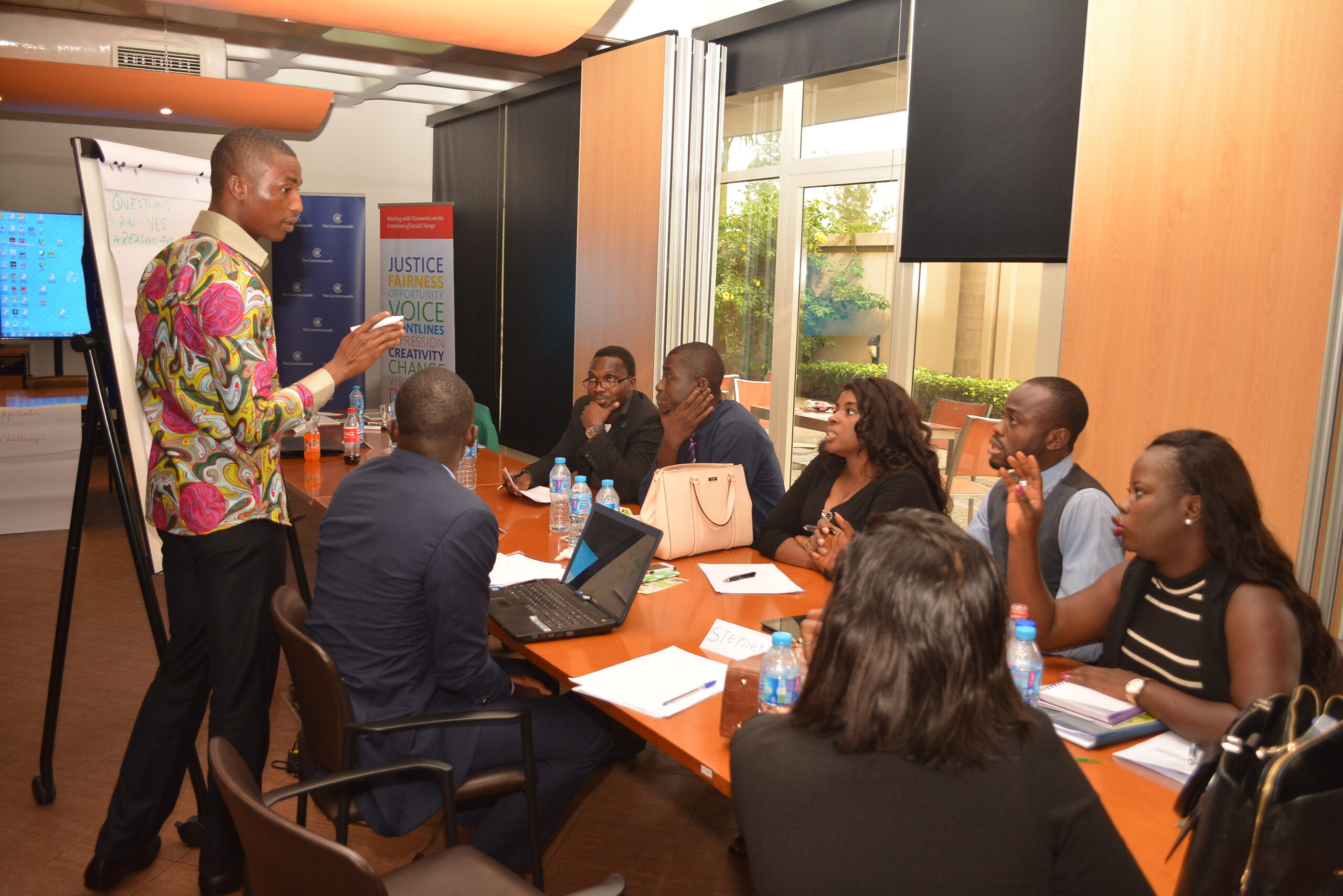A Stronger Voice, A Better Commonwealth
November 2nd, 2016
The Commonwealth Secretariat is bringing together young entrepreneurs from across West Africa with the intent of setting up a new regional youth alliance, writes Musa Temidayo, a young Commonwealth Correspondent from Lagos in Nigeria.
Never have I been more convinced about the importance of creating a supportive and thriving ecosystem for young entrepreneurs, and a stronger platform that will operate not just on a national setting but with a regional outlook.
In Commonwealth West Africa, the unemployment rate is very high, and this is often the result of a slow economy. The rise and fall of economic activities dictates when the companies recruit additional workers or lay off existing ones. If unemployment remains high for an extended period, it may become structural and there are severe consequences.
Over the last two decades, Commonwealth countries in this region have relentlessly worked towards growing their economies by boosting entrepreneurship. Yet, entrepreneurs still struggle with the basics of operating and growing their businesses because few of them understand how the ecosystem around them operates and how best they themselves can maximise it.
There are no defined policy frameworks for entrepreneurship, and in most cases, the failures of entrepreneurship interventions is when a one-size fit all approach is adopted. The model of entrepreneurship framework that will work in a particular region might fail if such is replicated in another region. What I have seen is that most governments take misguided approach in their aspirations to become the next Chile or Taiwan.
Framing a good policy rests on the depth of knowledge and availability of data. However, there are no actual statistics to substantiate a lot of issues around entrepreneurship, such as the total number of young people in entrepreneurship, the number of grants and loans available to them, the ratio of youth that have financial support for their businesses, etc.
For entrepreneurs to thrive, there needs to exist a supportive ecosystem of intertwined factors ranging from policy to financial access.
Furthermore, there is a major need for a more robust education curriculum that would accommodate entrepreneurship skills. Some of these changes should be introduced not only at the primary school stage but also at a tertiary level. New modules of entrepreneurship education should also be introduced. This will create a cultural change that will make entrepreneurship attractive to young people, and it will no longer be seen as an option for those who failed at formal education or are deemed “unfit” for a employment.
Each country must examine its own circumstances, and design approaches that are rooted in these local realities. As the number of young entrepreneurs grows, so does the need for a bigger voice to articulate their needs and concerns.
With the success of previous networks, the Commonwealth is gearing up to establish the Commonwealth Alliance of Young Entrepreneurs-West Africa (CAYE-WA) to strengthen linkages among young entrepreneurs, to share information and innovative practices in youth entrepreneurship, and to boost trade opportunities between young entrepreneurs in the region, and beyond. This alliance will also provide mentoring and support services for young and aspiring entrepreneurs in the region.
CAYE-WA will be launched in early 2017.




